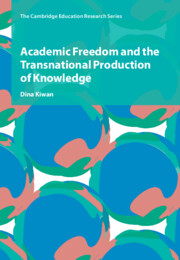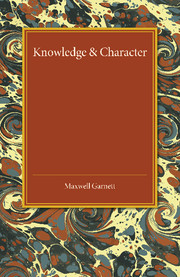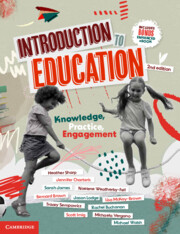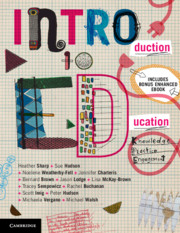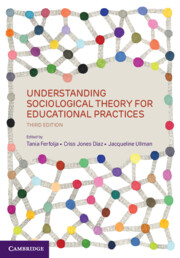Academic Freedom and the Transnational Production of Knowledge
Public debates on academic freedom have become increasingly contentious, and understandings of what it is and its purposes are contested within the academy, policymakers and the general public. Drawing on rich empirical interview data, this book critically examines the understudied relationship between academic freedom and its role in knowledge production across four country contexts - Lebanon, the UAE, the UK and the US - through the lived experiences of academics conducting 'controversial' research. It provides an empirically-informed transnational theory of academic freedom, contesting the predominantly national constructions of academic freedom and knowledge production and the methodological nationalism of the field. It is essential reading for academics and students of the sociology of education, as well as anyone interested in this topic of global public concern. This title is part of the Flip it Open Programme and may also be available Open Access. Check our website Cambridge Core for details.
- Develops a transnational theory of academic freedom and knowledge production situated within socio-political, geographical, historical and broader geo-political contexts
- Provides rich empirical interview data from academics from the four countries of Lebanon, the UAE, the UK and the US
- Addresses the theoretical challenge of the presumed tension between academic freedom and diversity and inclusion
- Challenges the binary that contrasts the Global North as a haven for academic freedom with the Global South as a context that punitively infringes on academic freedom
Reviews & endorsements
‘This is a powerful book by a distinguished scholar who has assembled a remarkable collection of compelling reflections on academic freedom and its relationship to the production of knowledge, and to (de-)legitimized and forbidden knowledge. Unlike Western-centric educational studies, this book uncovers many examples not only from US and UK but also from Lebanon and UAE of the violation of academic freedom that challenge us all to think through what it would mean for politics, culture and economy in academia.’ Sari Hanafi, Professor of Sociology, American University of Beirut and President, International Sociological Association
‘In this brave book Kiwan courageously lifts the lid on the seething cauldron of academic freedom. Armed with her weapons of searing clarity and academic rigour she exposes the political machinations of not only the left and right, but uniquely the gulf between the Global North and South. A much-needed compass in these times of ‘woke’ culture wars on our campuses.’ Heidi Safia Mirza, Emeritus Professor UCL University of London, author of Race, Gender and Educational Desire
‘Breaking new ground by deconstructing the methodological nationalism inherent in debates about academic freedom, this text offers fresh insights and new research which de-exceptionalizes the presumed sites of liberal expression. Dina Kiwan has produced a masterfully synthesized account of how knowledge, and those who produce it, are continually under constraint, politically, materially, and institutionally.’ Jasbir K. Puar, author of The Right to Maim: Debility, Capacity, and Disability
Product details
January 2024Hardback
9781108490283
212 pages
250 × 175 × 17 mm
0.54kg
Available
Table of Contents
- 1. Introduction
- 2. Constructions of academic freedom: freedom vs inclusion?
- 3. Constructions of knowledge
- 4. Producing knowledge: the role of the university
- 5. Challenging knowledge: internal and external restrictions
- 6. 'Forbidden' knowledge
- 7. 'Legitimate' knowledge: methodological debates and the political sociology of knowledge production
- 8. Conclusion: a transnational theory of academic freedom and the production of inclusive knowledge
- References
- Index.

